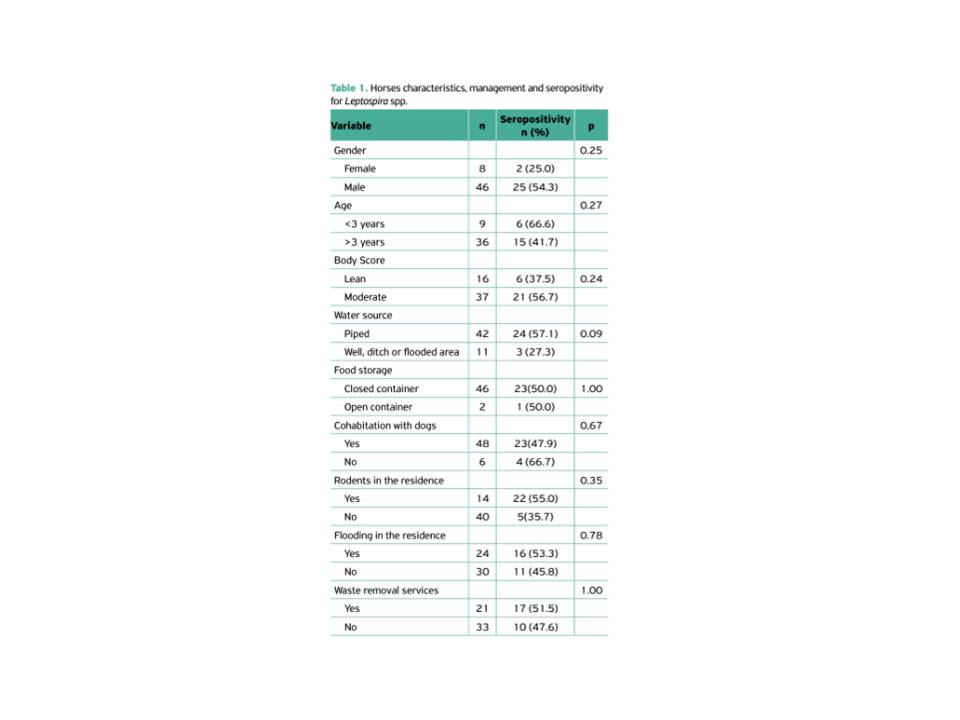Anti-Leptospira spp antibodies in cart horses of the city of Guaíba, Rio Grande do Sul State, Brazil
DOI :
https://doi.org/10.21708/avb.2021.15.1.9618Résumé
The objective of this study was to evaluated the occurrence of antibodies against Leptospira spp in horses used by communities of carroceiros, informal waste collectors who use horse-drawn wagons, in Guaíba, Rio Grande do Sul. Additionally, interviews were conducted with owners to assess characteristics of the horses and environmental and work. Serological testing for Leptospira spp. was performed on blood samples collected from 54 horses using the microscopic agglutination test. Results showed that 50.0% of the horses were seropositive for Leptospira spp and the most frequent serogroup was Leptospira canicola (44, 4%), followed by Leptospira pyrogenes (5, 5%), Leptospira bataviae (3,7%), Leptospira hebdomadis (3,7%), Leptospira icterohaemorrhagiae (1,8%; 1/54), Leptospira australis (1,8%) and Leptospira pomona (1,8%). There were no statistically significant associations among seropositivity for Leptospira spp and age, sex, body score, water source, food storage, cohabitation with dogs, rodent infestation, residential flooding and waste removal services. The prevalence of the Leptospira canicola serogroup, as well as the large number of dogs in close relationship with the horses, carroceiros draws attention to the potential of these animals as a source of Leptospira spp. infection to humans and other animals.
Keywords: wagon, sanitation, leptospirosis, serogroup, zoonosis
Téléchargements

Téléchargements
Publié-e
Numéro
Rubrique
Licence
Autores que publicam na Acta Veterinaria Brasilica concordam com os seguintes termos: a) Autores mantém os direitos autorais e concedem à revista o direito de primeira publicação, com o trabalho simultaneamente licenciado sob a Licença Creative Commons Attribution que permite o compartilhamento do trabalho com reconhecimento da autoria e publicação inicial nesta revista. b) Autores têm autorização para assumir contratos adicionais separadamente, para distribuição não-exclusiva da versão do trabalho publicada nesta revista (ex.: publicar em repositório institucional ou como capítulo de livro), com reconhecimento de autoria e publicação inicial nesta revista. c) Autores têm permissão e são estimulados a publicar e distribuir seu trabalho online (ex.: em repositórios institucionais ou na sua página pessoal) a qualquer ponto antes ou durante o processo editorial, já que isso pode gerar alterações produtivas, bem como aumentar o impacto e a citação do trabalho publicado (Veja O Efeito do Acesso Livre).


 Esta obra está licenciada com uma Licença
Esta obra está licenciada com uma Licença 